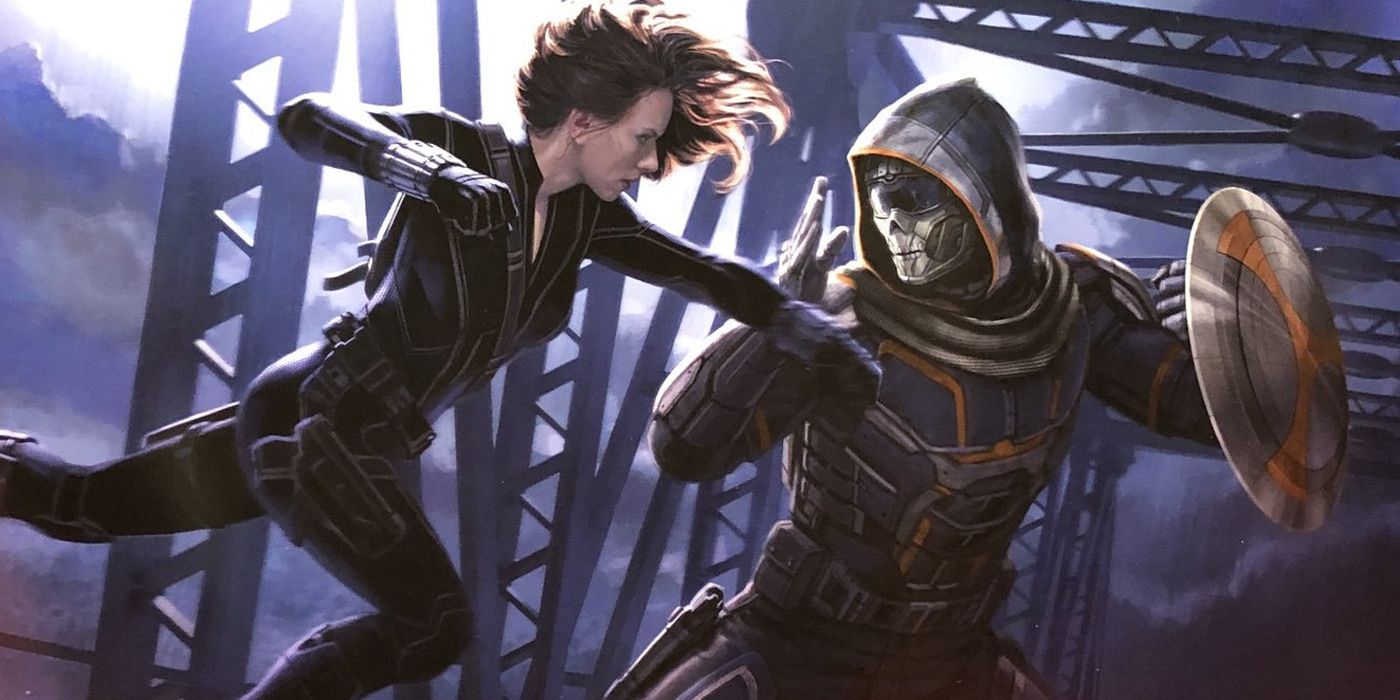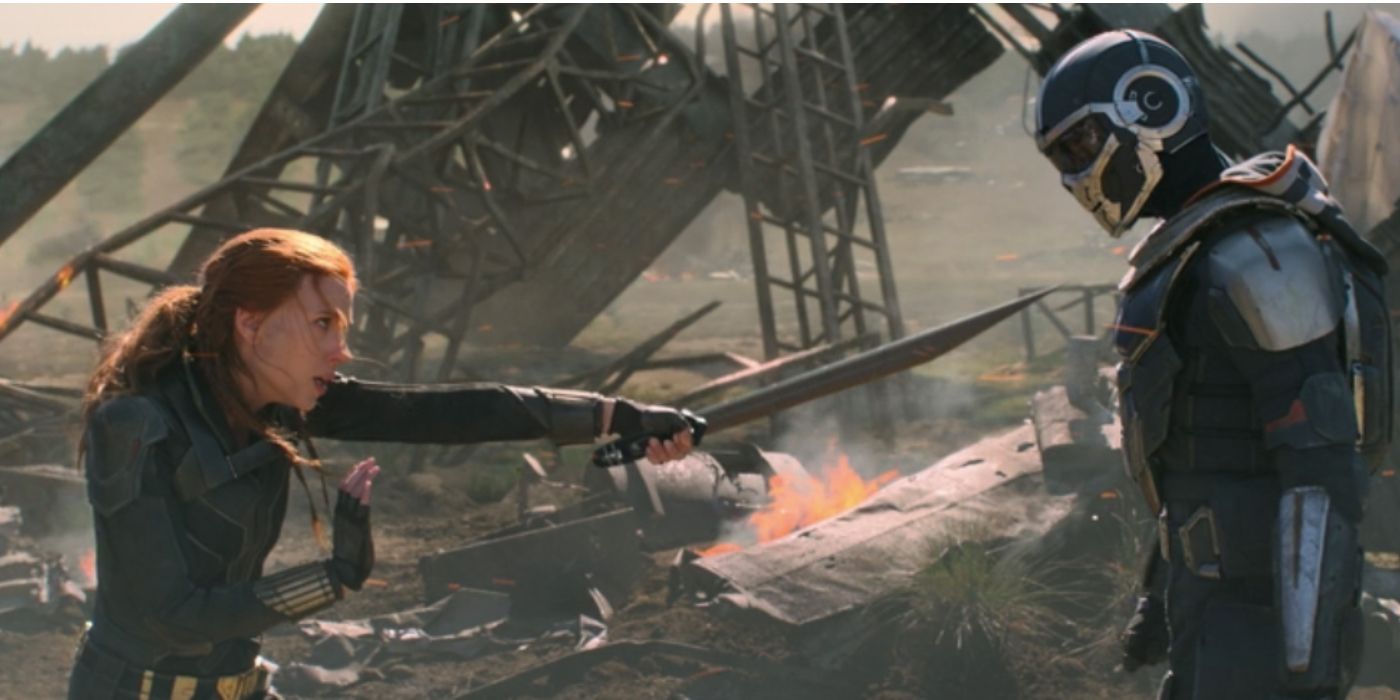Warning: major spoilers ahead for Black Widow
Black Widow director Cate Shortland explains why the identity of the film’s villain, Taskmaster, is so important. It took seven films and over a decade in the Marvel Cinematic Universe for Natasha Romanoff (Scarlett Johansson) to get a solo film but Black Widow is finally available on Disney+ and in theaters. Since Natasha dies in Avengers: Endgame, Phase Four’s newest blockbuster takes place between the events of Captain America: Civil War and Avengers: Infinity War.
Black Widow opens with flashbacks of Natasha’s life undercover in Ohio with her surrogate family in 1995. It is through the lens of two innocent children, Natasha and fellow Widow trainee/sister figure, Yelena Belova (Florence Pugh), that the audience is introduced to Melina Vostokoff (Rachel Weisz), Red Guardian (David Harbour), and General Dreykov (Ray Winstone), the leader of the Red Room, the place where Widows are trained and indoctrinated. Natasha and her family’s attempts to take down the Red Room are complicated by the enigmatic murder machine Taskmaster, who is ultimately revealed to be Dreykov’s daughter Antonia, who Natasha thought had been killed in her and Hawkeye’s infamous Budapest mission.
In an interview with GamesRadar, Cate Shortland talked about the importance of keeping Taskmaster masked for the majority of Black Widow. In particular, the director spoke on what Taskmaster’s identity signifies for Natasha and Yelena. Read what she had to say below:
"What's great in the film is, you see that [Natasha] physically has to face what she's done," said Shortland. "It's not a fragment [of that]. It's real. And so she's really facing her worst nightmare. I almost see Taskmaster as being her psyche, 'This is what I've done, and it's coming back to get me.' The androgyny of the character is really interesting...Natasha is a perpetrator. And that's what I love is this ambiguity. She's not Superman. She's done some terrible things. And this is the film where she has to face that. And, what it does is, it allows her to go to Endgame and the sacrifice she makes with resolve because she's had to face all the parts that she's tried to shut down inside her. All the little black boxes, she's had to open them up or Yelena is kicking them open."
Hearkening back to The Avengers (2012), Natasha tells Loki “I’ve got red on my ledger, I’d like to wipe it out” to which Loki replies “Can you wipe out that much red? Dreykov's daughter, Sao Paulo, the hospital fire? Barton told me everything. Your ledger is dripping.” Natasha thought she had greenlit Antonia’s death to kill her father. However, when she returns to Budapest, Yelena tells her Dreykov is still alive. Ultimately, Natasha not only frees Antonia (Olga Kurylenko) from the Red Room’s mind control but the rest of the Widows, too. Despite the film’s tardiness, it brings its star’s story full circle while setting up the future.
Dreykov is a darker MCU villain and Black Widow a more violent movie. It doesn’t strictly adhere to the comics; the movie ignores Taskmaster’s usual identity as a Captain America, Ant-Man, and Spider-Man villain (who’s also usually male). The Antonia twist tries to facilitate a cohesive and impactful story that sets up the future. Natasha’s legacy will live on with the other Widows, especially Yelena, as the post-credits scene puts her on a collision course with Clint Barton AKA Hawkeye. That said, Pugh will reprise her role as Yelena in Disney+’s Hawkeye and will presumably become the next Black Widow.
Source: GamesRadar








